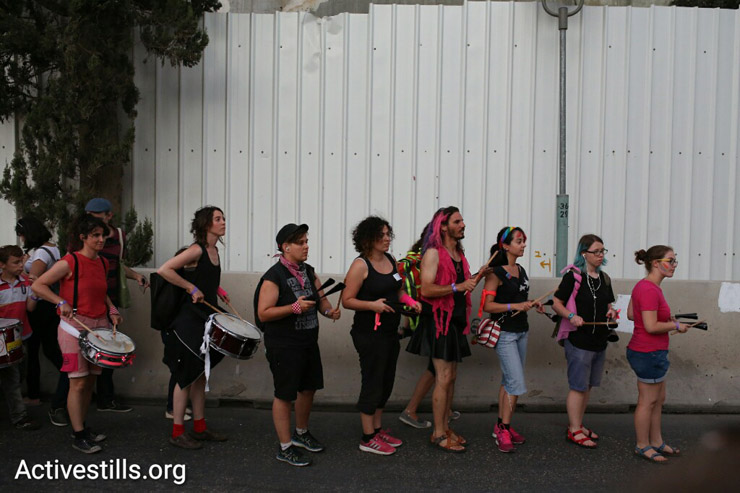Recent homophobic comments by Israel’s religious leaders are a reminder that the struggle for a pluralistic society will only grow more intense in the years to come.
By Yossi Dahan

The recent remarks by Rabbi Yigal Levinstein, head of the distinguished IDF preparatory yeshiva in the West Bank settlement Eli, who called the LGBT community “perverts” and accused Reform Judaism of being an “offshoot of Christianity” — are not a coincidence. Not only do they express a moral opposition to what is happening within the army, they are part of a political attempt to signal to the IDF chief of staff and the army’s chief education officer that Levinstein and other top rabbis do not intend to forgo their influence and power in molding IDF soldiers’ lifestyle and principles.
Professor Yagil Levy uses the term “theocratization of the army” to describe the influence of national-religious rabbis — some of them heads of army preparatory programs, others heads of preparatory yeshiva (which combine religious studying with IDF service) — on the army. Levy describes a process by which religious authorities begin to take precedent over state authorities. In the eyes of rabbis such as Levinstein, there is a limit to the legitimacy of state laws. As they see it, in the struggle between state law and religious law, the latter wins out.
Newly-appointed IDF Chief Rabbi Eyal Karim shares Levinstein’s worldview in everything having to do with women, LGBTs, and religious rules of warfare — which justifies acts such as killing wounded enemy combatants, along with innocent civilians. According to international law, these acts are considered war crimes and are a blatant violation of both military and state law.
The process of subjugating soldiers’ personal lives to religious principles is characterized, according to Levy, by attempts to pressure the army to implement religious practices, as well as through a gradual takeover of the IDF from the inside, so as to directly influence what happens in the army. The co-founder of the Eli preparatory yeshiva, Rabbi Eli Sadan, who was awarded the Israel Prize last year (and who had reservations about Levinstein’s remarks) has previously stated: “We must find our way into all the establishments — the army, the Shin Bet, the legal system — in order to mold the perfect state.” Similar remarks were made by Rabbi Shlomo Aviner: “Our army is holy… sometimes there are a few unfavorable changes, but they won’t succeed. We must not fall asleep at the wheel, but instead know we are winning.”
These “unfavorable changes” include not only inviting “perverts” to give lectures at officers’ bases, but primarily what religious-Zionist rabbis view as deliberate steps to reduce their influence on the IDF. The culture war between state laws and halakhi law can be viewed in another worrying context: Levinstein and other rabbis who express similar views belong to the growing branch of Chardal Jews (religious-Zionist Jews who tend significantly toward ultra-Orthodox Judaism) — a branch that is hostile to the idea of democracy and emphasizes a fundamentalist worldview coupled with nationalist ideology, which has been growing stronger in Israel’s religious education system.
This system, which includes both private and publicly-funded schools, places a heavy emphasis on religious studies over secular studies, includes separation between boys and girls, and has selective acceptance mechanisms that discriminate against students from lower socio-economic backgrounds, many of them Mizrahim. Many of the graduates will pass through army preparatory programs funded by the state, which are run by the likes of Levinstein.
This culture war isn’t going anywhere in the coming years, and the struggle over pluralism, gender equality, social justice, and democracy will only grow more intense — both inside the army and outside it.
Yossi Dahan is a law professor, the head of the Human Rights Division at the College of Law and Business and the co-founder of Haokets. This article was first published in Hebrew in Yedioth Ahronoth and Haokets.


